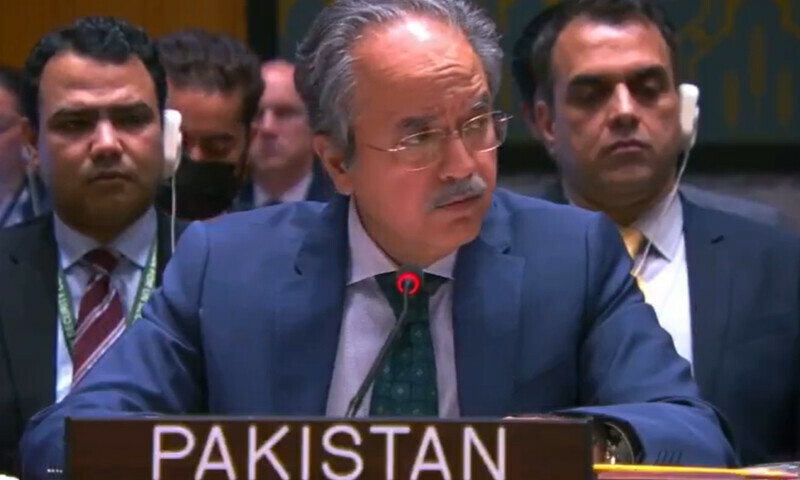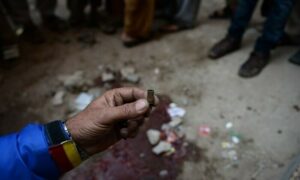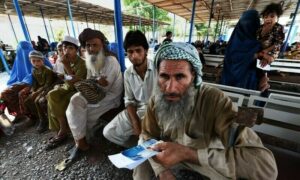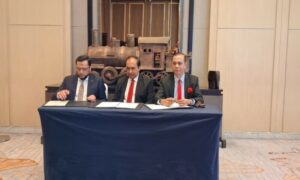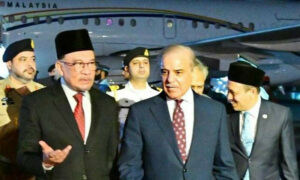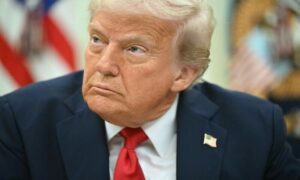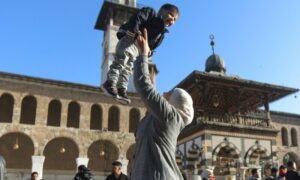Pakistan on Thursday called for implementing last month’s UN Security Council resolution that demanded the withdrawal of Rwandan-backed M23 rebels from Goma and other parts of the Democratic Republic of Congo (DRC) they control and encouraged DRC and Rwanda to return to diplomatic talks.
In February, columns of M23 fighters entered the centre of another key city in eastern Democratic Republic of Congo as the African Union had highlighted growing fears that the strife-torn country could break up. The fighters had reached outlying districts of Bukavu, the capital of South Kivu province.
The fall of the city of one million people, which was barely defended by the Congolese armed forces (FARDC), gives the M23 total control of Lake Kivu, following its capture of Goma, the capital of neighbouring North Kivu province, at the end of January.
“It is evident that there is no military solution to this conflict,” Ambassador Asim Iftikhar Ahmad, permanent representative-designate of Pakistan to the United Nations, said during a debate on the deteriorating situation in the DRC.
“In recent weeks this Council has devoted considerable time and attention to the situation in the Eastern DRC, where M23s military offensive, with external support, has imperiled peace and security, upended lives of innocent civilians, exacerbated the humanitarian situation and drastically increased the risk of a wider escalation in the Great Lakes region,” the Pakistani envoy stated.
All sides, particularly M23, he stressed, must engage in good faith with the facilitators led by Angolan President Joao Lourenco and former Kenyan President Uhuru Kenyatta.
“We believe these African-led and facilitated processes provide the appropriate framework for comprehensively addressing the complex historic and ongoing underlying factors, including the legitimate security concerns of all sides.”
Ambassador Ahmad commended the peacekeepers of the UN stabilisation mission in DR Congo (Monusco) for their efforts under extremely difficult conditions — while they are able to operate in 60 per cent of the territory, M23 controls the remaining 40pc, restricting its movement.
“These restrictions must be lifted fully, and those obstructing Monusco or endangering peacekeepers must be held accountable.”
In this regard, he said the Mission needed to be adequately strengthened and equipped to discharge its current or modified mandate in the future, in consultation with the DRC government.
In conclusion, the Pakistani envoy said it would be in the interest of the DRC and Rwanda and the wider region to demonstrate political will and genuine commitment, particularly the implementation of this UNSC resolutions and decisions of the African Union Peace and Security Council and sub-regional organisations, to lay the foundation of durable peace and stability in the region.
Briefing the Security Council, the head of Monusco, Bintou Keita, told its members that armed groups affiliated with Rwanda-backed M23 rebels in the eastern DRC have continued to expand their control in North and South Kivu setting their sights on more territorial gains.
She voiced concern over the escalating violence and displacement in the country since M23 overran the key cities of Goma and Bukavu last month.
These armed groups are not only seizing territory, she explained, but also attempting to install a parallel administration, recently appointing a governor and two vice-governors in Bukavu as well as financial and mining officials in North Kivu.
The Monusco peacekeepers have been in DRC since 2010 with a mandate to protect civilians and strengthen the Congolese government’s efforts to quell violence and insecurity at the hands of multiple armed groups in the east.
Monusco had proceeded, at DRC’s request, to withdraw its troops from South Kivu in June 2024, but Kinshasa reversed course, asking the Security Council to extend Monusco’s mandate through the end of 2025.
Despite best efforts, armed groups have made major recent gains, chiefly the March 23 Movement, which defends the interests of Congolese Tutsi many exiled from Rwanda and benefits from the support of Rwandan forces, and the extremist Allied Democratic Forces (ADF).
Keita described an alarming rise in human rights violations, including the summary execution of more than 100 civilians, forced child recruitment, abductions and cases of forced labour.
Women and children remain the main victims, she told the Council, noting a spike in sexual violence linked to mass displacement, conflict and the presence of escaped prisoners and new recruits in affected areas.
Internally, displaced girls and boys are traumatised, explained Charlotte Slente from the Danish Refugee Council, also briefing member states. We have heard reports of girls engaging in survival sex, she underscored.
Aid workers have documented rape cases involving girls as young as five, with nearly every child protection case involving sexual violence. From December 2024 to February 2025, 403 grave violations of children’s rights were verified.
In Ituri province above North-Kivu, violence between CODECO and Zaire armed groups has worsened, with civilians near mining zones and farmland bearing the brunt of the attacks.
The security situation has driven hundreds of thousands from their homes, with over 100,000 newly displaced since January in the city of Djugu in Ituri, alone.
However, humanitarian access remains severely constrained due to insecurity, roadblocks and the closure of key airports in Goma and Kavumu.
At the same time, the situation is being aggravated in a global context of financial crisis, Keita stressed. As of March, the 2025 Humanitarian Response Plan for the DR Congo was only 8.2pc funded.
Despite these obstacles, Monusco continues to deliver on its mandate, she underlined, citing expanded patrols, civilian protection efforts and the facilitation of disarmament talks in Ituri.
These led to the surrender of over 2,200 fighters from the Zaire group and the capture of weapons and ammunition.
Meanwhile, the deployment of a new Force Commander in North Kivu, has boosted coordination with Congolese forces. Still, Monusco faces movement restrictions imposed by M23 in and around Goma, including roadblocks and advance notice requirements.
Keita expressed deep concern over rising hate speech and ethnic targeting of Tutsi and Swahili-speaking Congolese, particularly as displaced populations move westward into DRCs vast interior.
She called on the government to adopt legislation to counter tribalism, racism, and xenophobia and reaffirm the nation’s diversity.

